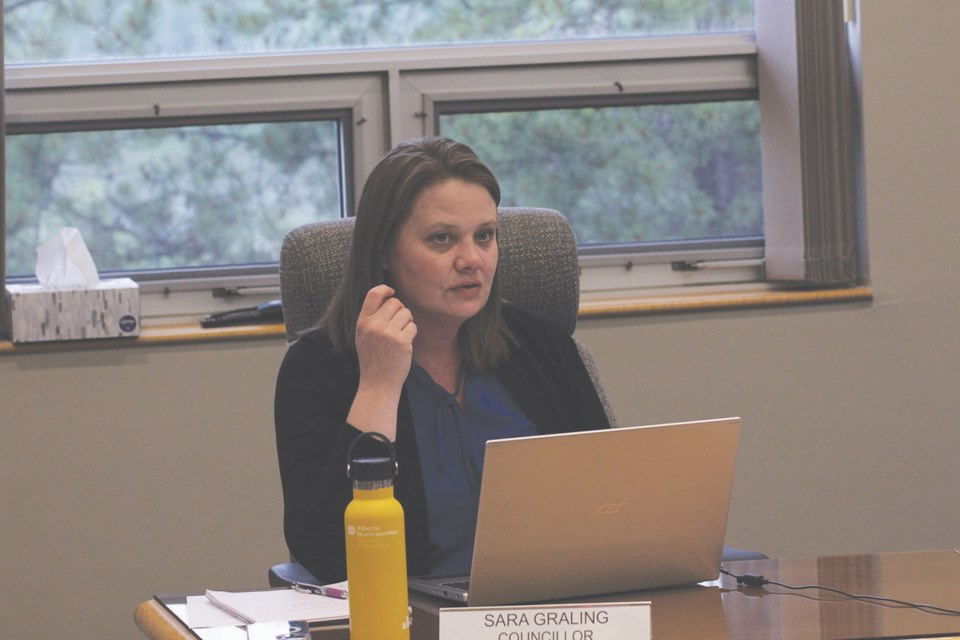ATHABASCA – With the start of fall fast approaching, local municipalities are starting to gear up for budget discussions again. For the Town of Athabasca, that included an emotionally charged discussion over franchise fees for 2024.
During their Sept. 5 council meeting, councillors voted 4-3 against a motion that would have guaranteed the town does not raise the fee for the upcoming year. Councillors Sara Graling, Ida Edwards, and Edie Yuill were in favour of the motion, while mayor Rob Balay and councillors Jonathan LeMessurier, Dave Pacholok, and Darlene Reimer voted against it.
A motion to defer the topic to the Sept. 19 meeting passed 7-0.
“In the end, we just have to weigh these decisions as individual councillors,” said Balay in a Sept. 6 interview. “If the budget calls for an increase in costs to maintain our level of services, then this is one of our options; it’s why I asked for more information before we vote on this again.”
Franchise fees, which are applied to all utility users as part of the distribution charge, can be an alternative to raising property taxes for municipal politicians — the fee is charged to all utility users, including churches, schools, and hospitals, all of which are tax-exempt.
Graling, who made the motion to not raise rates, said that the anticipated increase in revenue — the town is estimating a $1,000 increase over budget from Apex, and a $5,000 increase from Fortis — meant the town could afford to not raise the rates this year. Unlike property taxes, franchise fees can only go so high.
“Since we expect to have slightly higher revenues throughout 2023, my thoughts are to hold off on any increases at this point in time,” said Graling.
LeMessurier, however, said he would be more inclined to support a franchise fee increase since it hits all of the users.
“I would prefer, if we’re going to raise one or the other, to see it coming from the franchise fees, where we’re hitting all the users versus just commercial and residential spaces,” he said.
Yuill pointed out that LeMessurier had missed an important group in his list: renters, who don’t directly pay property tax, are impacted by franchise fees.
“Right now, we’re in a recession, and there’s a lot of people out there who can’t afford their utility bills, so to keep adding and adding just because you hit the churches, well you also hit the little people, and I’m one of them right now,” said Yuill.
In 2022, council voted to raise the franchise fees for Apex and Fortis by two per cent, meaning fees were at 16 per cent for 2023. A further two per cent increase would add approximately $20.89 a year to an average customer’s bill, according to the request for decision from Jeff Dalley, the chief financial officer for the town.
“We had a meeting at the Multiplex, and the thing that was brought up was all these hidden little taxes that the town keeps bringing up, and people were upset,” said Yuill. “That’s the will of the people, and I think we need to go back to that. We know what they’re getting for it, but they don’t, and there’s a lot of upset people out there.”
Councillors will be discussing the topic again at their Sept. 19 meeting; the deadline to let the utility companies know if the fees will be raised or not is Nov. 15, and the town will need to advertise the increase beforehand, as required by the Alberta Utilities Commission.



